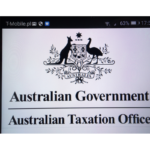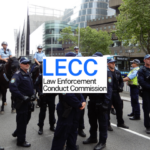Should Everyone Have the Right to Legal Representation?

Radio ‘shock jocks’ and tabloid newspapers are well known for blasting government-funded community legal centres who represent those accused of serious criminal offences, frequently labelling them a waste of taxpayers’ money.
Following the Sydney siege last year, even our own Prime Minister Tony Abbott expressed his discontent with the legal system, declaring that Man Haron Monis’ receipt of Legal Aid funding for his High Court case was an example of ‘taxpayers funding attacks on taxpayers.’
Perhaps this apparent dissatisfaction with taxpayer-funded legal representation is to blame for the government’s decision last year to cut $6.5 million over four years from Legal Aid funding for Federal criminal cases, including terrorism offences.
So is there ever a case where a person should be denied access to a lawyer because of the nature of the crime that they are alleged to have committed – or because they have a history of repeat offending?
Or does everyone deserve the right to legal representation in Australia?
Taxpayer-Funded Trials For Serious Criminals?
There have been a number of highly publicised taxpayer-funded criminal cases over the years which have drawn antipathy from the wider public.
Members of the public and parliament often question why these persons deserve the right to free legal representation given the fact that they have committed heinous crimes against members of the public.
For instance, certain news outlets published articles late last year stating that Man Haron Monis ‘cost taxpayers an estimated $120,000 to run his failed appeals against convictions’ for sending hate mail to families of deceased soldiers.
Another highly publicised case was that of Bilal Skaf, a leader of the group who ‘gang raped’ women in 2000. Skaf was represented by Legal Aid in his Court of Criminal Appeal case against the severity of his sentence.
And 18 year-old Kieran Loveridge, the young man convicted of killing Thomas Kelly by a ‘coward’s punch’ to the head, was represented by the Aboriginal Legal Service. His case was the catalyst for the harsh new ‘lockout laws’ which were introduced last year.
Taxpayers and politicians against public funding of such cases advance the argument that by giving such offenders free legal advice and representation we are simply facilitating reoffending, because they will come to realise that they do not have to bear the financial burden in fighting future cases.
But while some are angered at the thought of their hard-earned tax dollars being used to provide legal representation to such people, the suggestion that taxpayers should not foot the bill for those who cannot afford a private criminal lawyer ignore sthe principles of justice and fairness.
Should We Give Free Legal Advice to Asylum Seekers?
The issue of how much (or how little) help those seeking asylum in Australia is yet another source of contention in the media and wider community.
It was reported back in 2012 that taxpayers were spending around $60 million providing free legal advice and representation to asylum seekers, with ‘80% winning their appeal for refugee status.’
Commentators suggested that immigration lawyers and refugee legal centres profited from these measures, with Melbourne’s Refugee & Immigration Legal Centre racking in $4.13 million in a single year.
Some expressed the view that Australia did not have any obligation to assist such people financially because they were not born here, did not work here, and did not pay taxes.
This led to the Federal Government last year announcing that it would scrap taxpayer-funded legal advice for asylum seekers, with Immigration Minister Scott Morrison declaring:
‘We don’t think taxpayers, particularly in this fiscal environment, should be there adding further incentive for people to have access to this sort of advice when they’ve decided to come to Australia by this means.’
The decision was expected to save taxpayers $100 million over four years. But the move was met with fierce criticism from refugee advocates, who expressed the view that many would forgo the right to a fair hearing due to financial constraints and language and cultural barriers – not to mention the difficulties of navigating a foreign legal system.
This would inevitably see many legitimate asylum seekers – including women and children – being sent home, where their lives would be put at risk.
Does Everyone Deserve a Right to Legal Representation?
So, given these issues and the vast differences in public opinion, to what extent should taxpayers help others to obtain legal representation?
From one perspective, it is easy to understand the discontent with allocating taxpayer money to those accused of heinous crimes and asylum seekers who are ‘not our problem’. In the words of Prime Minister Tony Abbott, ‘people are entitled to go to the law, but why they are entitled to go to the law with taxpayer funding when they are essentially attacking public policy?’
To add to that argument, there is no express right to a fair trial in Australia, though it is contained in several international covenants to which Australia is a signatory.
But as discussed in previous blogs, to deny people legal representation simply because they are accused of serious crimes or are not Australian residents ignores the fundamental tenets of justice and fairness upon which or justice system is based.
Those eligible for Legal Aid and other government-funded legal services must pass stringent assets and merits tests. Only those who do not have the means to pay for private legal representation are granted Legal Aid.
Those who meet the criteria for taxpayer-funded legal services are already marginalised and disadvantaged. To deny them legal representation, particularly in serious criminal cases which carry significant penalties, would be to further disadvantage them and potentially lead to innocent people being imprisoned simply because of their financial situation.
The legal system should be concerned with preserving the notion of equality before the law, irrespective of whether someone has been charged with a serious or repulsive offence, or has made the long and dangerous trip on a rickety boat trying to provide a better life for themselves and their family.






